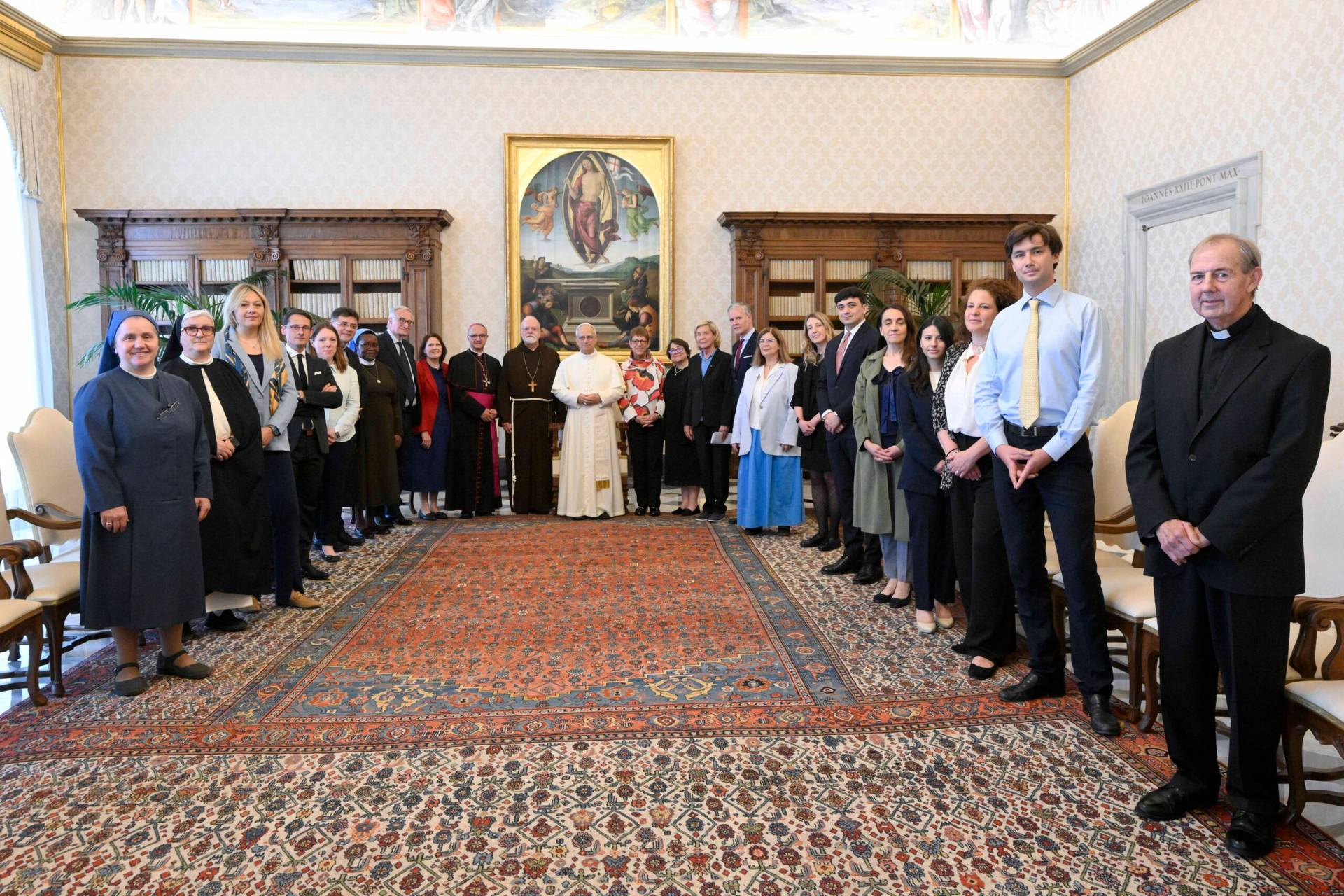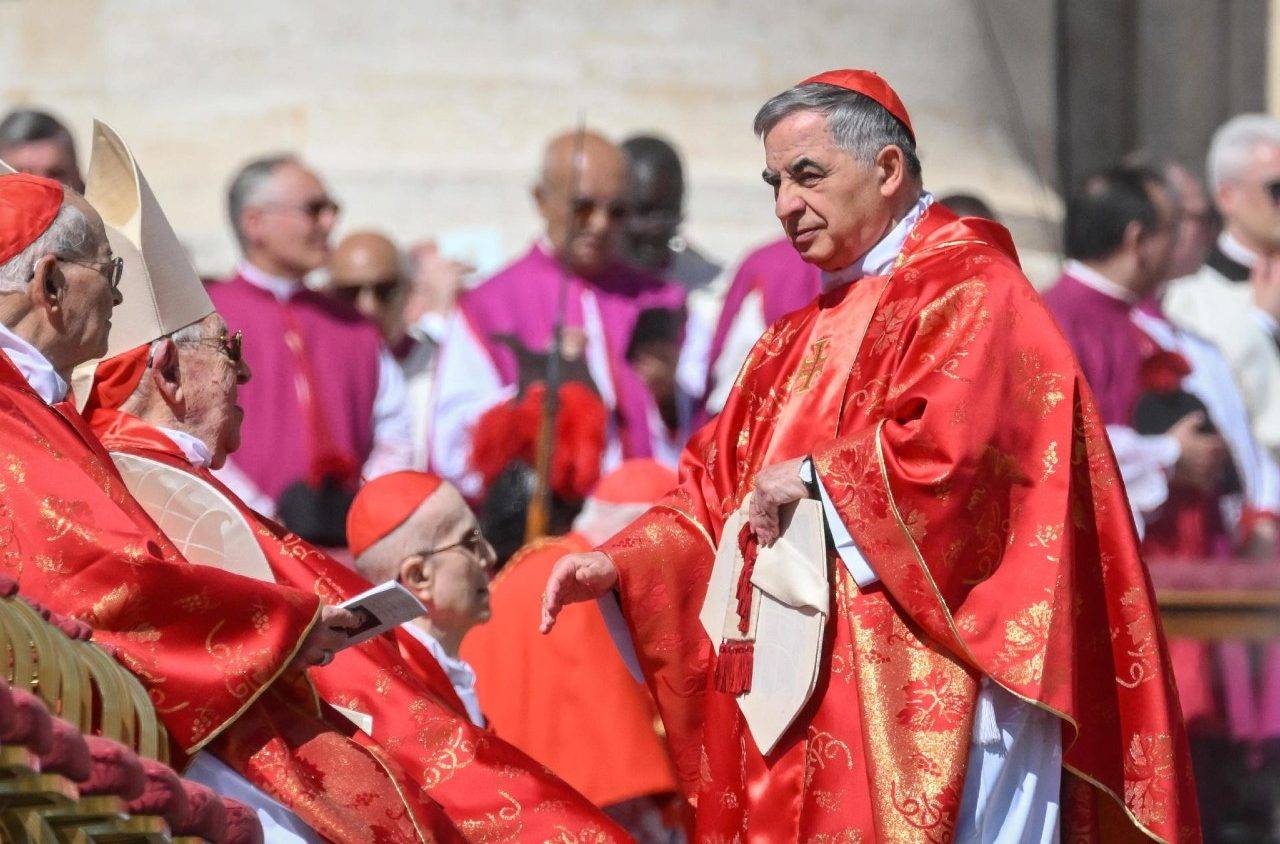ROME – We lost one of those remarkable, larger-than-life characters who, through the centuries, have always made Rome what it is when Bob Taft died on Monday at the age of 86.
Archimandrite Robert Taft, to be exact, since the American Jesuit priest and scholar was elevated to that dignity by the Ukrainian Greek Catholic Church in 1998, entitling him to the use of a miter and crozier, in recognition of his status as the greatest living scholar writing for a largely Western audience on the liturgies of Eastern Christianity.
From his perch at Rome’s Pontifical Oriental Institute from 1975 to 2011, Taft utterly dominated the field (and didn’t mind telling you that.) His six-volume A History of the Liturgy of St. John Chrysostom is considered by many experts to be not only the definitive work on the subject, but just possibly unsurpassable.
I honestly think the hardest part of leaving Rome for Taft wasn’t really leaving behind the scene of his greatest accomplishments, nor was it abandoning the Italian meals and wine he’d enjoyed for decades with great relish. It was giving up the seat in the institute’s library he’d occupied for 46 years, which had become, in effect, his audience hall.
Once, I was sitting there with him getting background for a story and a student walked over to say hello. As he walked away – loudly enough the student couldn’t miss it, of course – Taft said, “Smart kid, but doesn’t seem to get the formula for success around here: ‘Enter library, put ass in seat, do not leave.’”
None of that, however, is quite what made Taft so unforgettable for anyone who had the privilege to know him. Instead, here’s the thing: He was big, loud, crude, opinionated, hilarious, and just left your jaw dropping every time you talked to him.
When I met Taft for the first time over what would become many Roman meals over the years, we’d been talking about five minutes when I popped some question on Orthodoxy. Taft launched into a response, and I made the mistake of interrupting early on.
“Listen, kid, I’ve forgotten more about this subject than you will ever know,” he snapped back. “So just do me a favor, shut your damn mouth and open your ears.”
That’s how it would go for the better part of 20 years. I talked to Taft a lot, because he just flat-out knew everything (or had the confidence he did, which sometimes amounts to the same thing), but I always knew submission was the price of entry.
As a longtime centerpiece on the Roman scene, Taft was useful on all kinds of stuff beyond relations between East and West, usually phrasing his insights in decidedly earthy language. For instance, I remember once asking him why he thought so many seminarians and young priests from the developing world end up staying abroad rather than going home, exacerbating priest shortages in those places.
Taft’s simple take?
“They got used to going to the bathroom in a toilet that flushes,” he said. (Actually, the expression was a bit more off-color, but this is a family news site.)
Still, it was Eastern Christianity where Taft’s star shone the brightest, and he was never shy laying out his take on things. In essence, he thought the best path to Christian unity ran through the synodal structures of the Eastern churches, in which each church in communion with one another is largely autonomous in its own affairs.
“It doesn’t mean everybody’s got to become Catholic,” he said in a 2013 interview. “It means we have to come to the point where we recognize each other as representatives of apostolic Christianity, [meaning] those churches of apostolic origin which have the valid priesthood, episcopate, all the sacraments, valid and adequate for the sanctification of their people. This is the new ‘sister Churches’ ecclesiology that the Catholic Church recognizes in several documents from Vatican II on.”
In the 1990s and 2000s, when I knew him, those positions often put him on what was considered the “liberal” side of internal Catholic arguments over papal power and collegiality. However, Taft could also be terribly hawkish in rejecting what he considered the Vatican’s basic lack of spine in standing up to the pretensions of the Patriarchate of Moscow in Russia, especially when it came to Ukraine.
Back in the early 2000s, for instance, the Ukrainian Greek Catholics were hoping Rome would recognize the leader of their church as a “Patriarch,” despite the fact it would irritate Moscow. Taft basically told me they should just get on with it.
“I told them, take two steps. First, publicly declare the patriarchate. Second, request Roman recognition, but even if it doesn’t come, refuse all mail that doesn’t come addressed to the patriarchate,” he told me in 2004.
“Don’t just pretend, but really do it. The Secretary of State sends a letter addressed to the archbishop? We don’t have any archbishop, we’ve got a patriarch. Send it back unopened, ‘addressee unknown.’”
That 2004 Q&A was perhaps Taft’s most famous foray into print, and it included insta-gems such as this take on why it’s difficult to deal with the Russians sometimes.
“To attempt to apply rational analysis to this is to fail to understand what the East is,” he said. “Once you get over on this side of the Atlantic Ocean, the further you go South or East from anywhere, the worse everything gets, except the food. Logic gets worse, rationality gets worse, and everything ultimately winds up in hysteria and emotionalism. It’s futile to try and reason about it.”
The interview came ahead of a visit to Moscow by German Cardinal Walter Kasper, then the Vatican’s point man for relations with the Russian Orthodox, and the shot heard ‘round the world was this:
Me: “So the Catholic Church is never going to persuade the Orthodox to accept the patriarchate?”
Taft: “No, and I don’t think we should even try. To hell with Moscow.”
That was the tenor of things with Taft, and it’s sorely missing in today’s debates.
Despite being a frequent Vatican critic, Taft was also an insider who exercised real influence. In 2001, he was instrumental in a decree approving inter-communion between the Catholic Church and the Assyrian Church of the East in certain circumstances. (He would call that ruling “the most remarkable Catholic magisterial document since Vatican II,” in part because it represented official Catholic approval for a time-honored Eucharistic consecration rite that doesn’t involve the ‘institution narrative’ of the synoptic Gospels, which Catholic tradition always has regarded as essential.)
Make no mistake, Bob Taft was not an unflawed man.
He could be arrogant beyond all belief, and crude to the point of deliberately shocking (in some ways, he seemed to delight in tweaking images of him as the scion of a distinguished Rhode Island family and a distant relative of President William Howard Taft.) He could be petty in his judgments, prone to anger and capable of carrying a grudge for a long, long time.
Still, what Robert Taft was, more than anything else, was an original – he was fully, completely his own man, in a town that often seems to reward fakes and ladder-climbers. Taft carved out a unique spot for himself in Rome, based not on careerism but utter and supreme competence.
Needless to say, he’s not going to be easy to replace. Yet the amazing thing about this town is, if you wait long enough, someone else like him will pop up – because, as it turns out, the system also needs those honest, colorful, tell-it-like-it-is gadflies from time to time who do their best, sometimes against all odds, to keep it honest.
Rest in peace, Archimandrite Taft, and may flights of angels sing thee to thy rest.

















